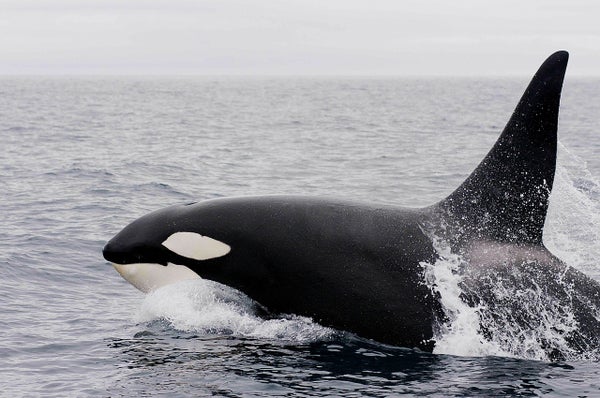This article was published in Scientific American’s former blog network and reflects the views of the author, not necessarily those of Scientific American
The future of marine mammals is at risk in U.S. waters. President Trump’s proposed budget for fiscal year 2019 would eliminate the Marine Mammal Commission. With an annual operating budget of $3.4 million, which comes to just over one penny per American per year, the Marine Mammal Commission has for 45 years been assiduously developing science and policy to protect seals, sea lions, dolphins, whales, dugongs and walruses. Through the 1972 Marine Mammal Protection Act (MMPA), Congress charged the commission with providing independent oversight of marine mammal conservation policies and programs being carried out by federal regulatory agencies. Obviously, with a proposed budget of zero dollars, it would be impossible to execute the federally mandated objectives of fostering sustainable fisheries (through the Magnuson-Stevens Fishery Conservation and Management Act [MSA]) and protecting endangered species (through the Endangered Species Act [ESA]).
Marine mammals are more than just lovable creatures. They are important components of productive marine and coastal ecosystems that overall generate $97 billion of the gross domestic product. Whales function as ecosystem engineers by cycling vital nutrients between deeper and surface waters in the oceans. Without this nutrient cycling, oceans would produce less plankton and phytoplankton, which would eventually mean less fish. Also, through complex food-web interactions, marine mammals help to regulate fish populations. For example, marine-mammal–eating killer whales (often called “transient” killer whales) will eat seals, a common predator of pelagic fish—enabling fish populations to stay high. This kind of interaction is called a trophic cascade and is very common in marine ecosystems.
Serving as an independent oversight body, the commission has the critical task of assessing the scientific validity and effectiveness of research conducted to meet the federal mandates of the MMPA, ESA and MSA. If we as a country can’t even protect the charismatic species, I worry for all the less adorable parts of nature. So we need to draw a line in the sand. In this era of “fake news,” maintaining this entity to guard against encroachments to science-based policymaking on is more valuable than ever.
On supporting science journalism
If you're enjoying this article, consider supporting our award-winning journalism by subscribing. By purchasing a subscription you are helping to ensure the future of impactful stories about the discoveries and ideas shaping our world today.
The elimination of the commission would signal an extreme undervaluing of how marine mammals form an important fabric of American culture. From indigenous traditions to whale watching, to observing seals on the beach, to whale-print pants on Martha’s Vineyard, our culture depends on the persistence of healthy populations of marine mammals. When populations of whales reached historic lows in the 1940s from commercial whaling, the government doubled down on conservation efforts, eventually implementing a ban on commercial whaling. Since that ban in 1986, some distinct humpback whale populations have recovered such that they were removed from the endangered species list just last year, In no small part, this was thanks to the science and policy work done by the Marine Mammal Commission.
The elimination of the commission will undoubtedly spark public pushback from enraged NGOs scientists and individuals across the country—and rightly so, as the commission has facilitated the scientific research and policy formation that have directly contributed to the successful recovery and/or partial recovery of multiple marine mammal species, such as (but not limited to) humpback whales in the Pacific, and gray seals and harbor seals in Cape Cod. Despite this success however, the commission is still needed today to aid in the fight for the conservation of endangered and threatened marine mammal species such as (but not limited to) killer whales in the Pacific and right whales in the Atlantic. It is best from all perspectives—economic, cultural, ecological, and, indeed, in the Trump administration’s own political interest—to remove the call for the commission’s elimination from the proposed budget.
Marine mammals are valuable to ecosystems, our economy and our culture. Plus they are damn cute. And none of this is fake news.
